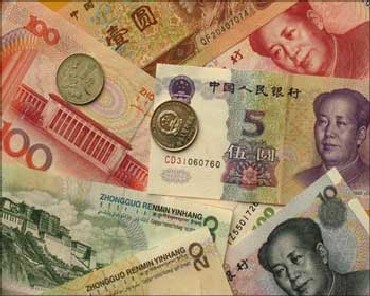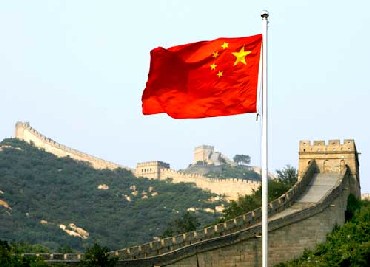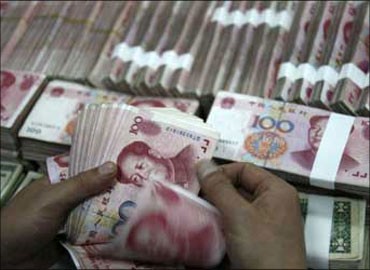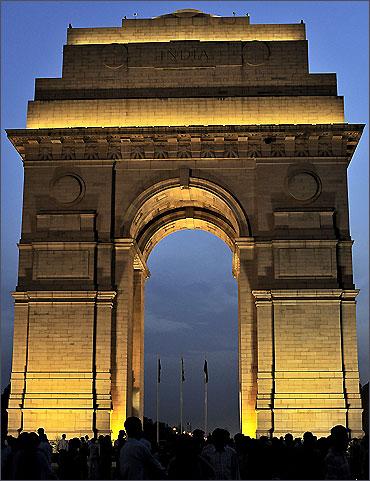Photographs: Reuters Lalit K Jha in Washington
India has better chances than China in enhancing its competitive position in the next two decades as the country's political-economic system provides an environment more conducive to entrepreneurial, innovative and inventive activity, an influential US think-tank said on Wednesday.
The think-tank, however, said that in next two decades, China would continue to maintain technological and economic edge over India, but would have demographic disadvantage over its Asian neighbour.
. . .
'India may have competitive edge over China'
Image: Chinese currency.As India and China continue to grow in prominence, each nation has certain advantages, but neither one is primed to have clear across-the-board competitive advantages over the other, RAND Corporation researchers have said in a report.
While India's prime working-age population will overtake that of China in 2028, China has advantages in science and technology, as well as in developing its national defence capabilities, according to the report.
But India's more open and flexible political structure may allow it to move nimbly in making adjustments to its policies and thereby improve its relative performance, perhaps providing it with an advantage over China.
. . .
'India may have competitive edge over China'
"Because of their population size and tremendous growth, India and China are both nations to watch," said Charles Wolf Jr, lead author of the study and a senior principal researcher with RAND.
"What happens in these two countries as they continue to grow will have major repercussions in the rest of the world," he added.
The RAND study assesses the relative attainment and prospects of China and India through 2025 in four areas: demography, macroeconomics, science and technology, and defence spending and procurement.
. . .
'India may have competitive edge over China'
Image: The Great Wall of China.Photographs: Reuters
Researchers say understanding the nations' relative standing on these issues will have an effect on potential cooperation and competition between the two countries, and may assist policymakers in other countries in developing policies towards the two nations.
By 2025, China and India have the world's largest populations, with India's rate of population growth about twice that of China's.
India's total population will equal China's in 2025 -- each will have an estimated 1.4 billion people -- and is expected to exceed China's population thereafter.
. . .
'India may have competitive edge over China'
Photographs: Reuters
In addition, India's prime working-age population will overtake China's in 2028.
While the Chinese public is ageing faster than in India, China's population is healthier, has access to a better-developed health care system, and has higher levels of literacy and education, according to the study.
The growth rate of the gross domestic product in each of the nations from 2020 to 2025 is expected to be about the same -- 5.7 per cent in China and 5.6 per cent in India, RAND said, adding that by 2025 the difference between their two GDPs is estimated to be USD 4.4 trillion annually.
. . .
'India may have competitive edge over China'
Image: The India Gate.China comes out ahead in the science and technology field, with more full-time science and engineering researchers, more people with science and engineering doctorates, and more patents and academic journal publications, it said.
However, the quality (measured as employability) of graduate engineers from China is 60 per cent lower than those from India, according to a survey of multinational businesses.
RAND researchers conclude that prospects for India to enhance its competitive position with China are better than China's chances to do the same, because India's political-economic system allows a greater degree of economic freedom and provides an environment more conducive to entrepreneurial, innovative and inventive activity.
That flexibility may favour India's position in the long-term competition between the two countries.







article